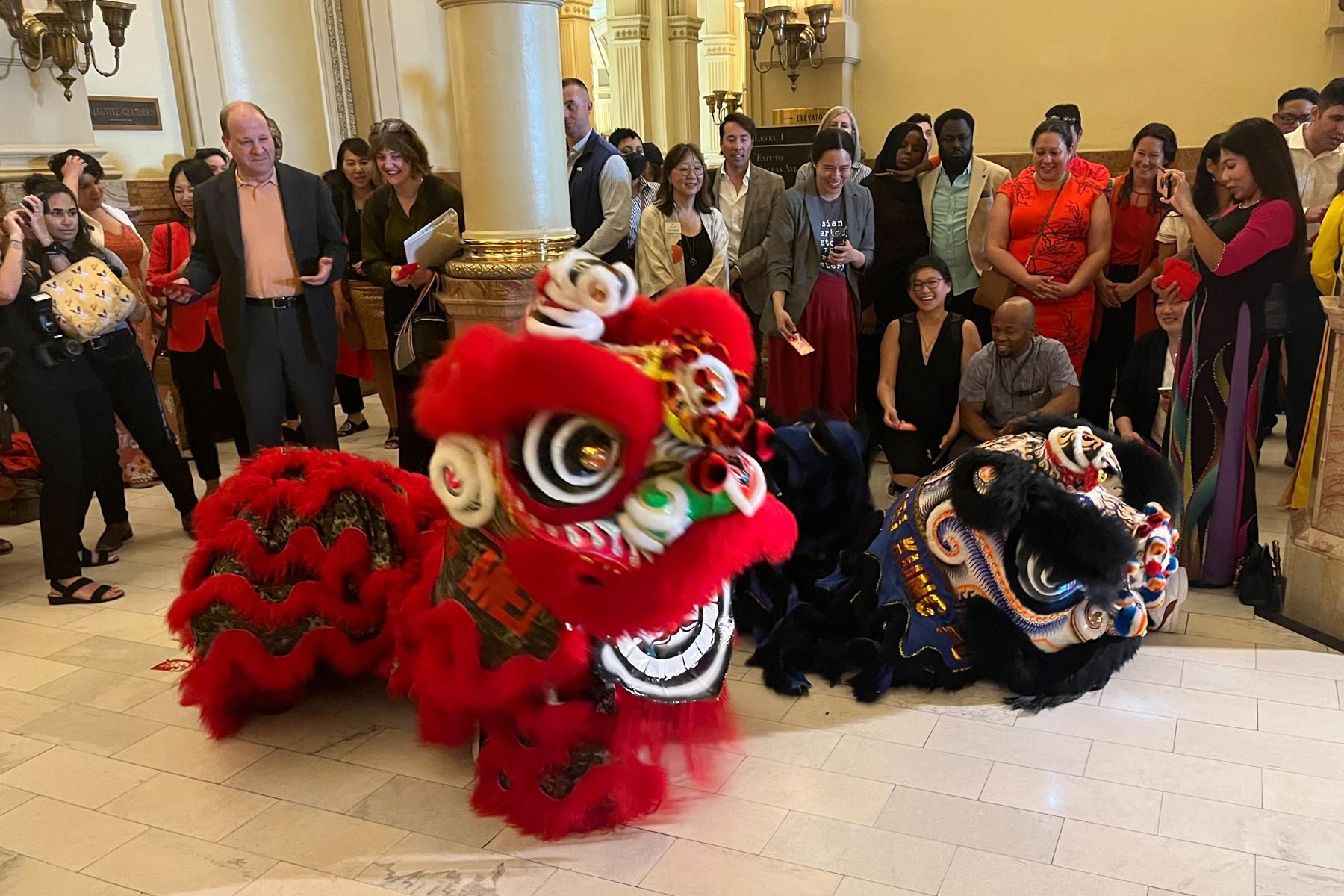The banging of drums reverberated through the State Capitol lobby. Colorful, furry lions danced, wiggled and leapt around to the sound. A crowd cheered them along, clapping and basking in the moment.
Minutes before, that same crowd stood on the steps inside the Capitol and watched Gov. Jared Polis put his stamp on a bill they've been hoping would pass for a long time.
On June 2, Lunar New Year became an official state holiday and will be celebrated by Coloradans the first Friday of every February.
"I feel elated. I feel overwhelmed, overjoyed and I feel that it's long overdue," said Nga Vương-Sandoval. "This moment is something that our entire community has conceptualized, but [we] haven't had the perfect timing to actually materialize it into something this tangible."
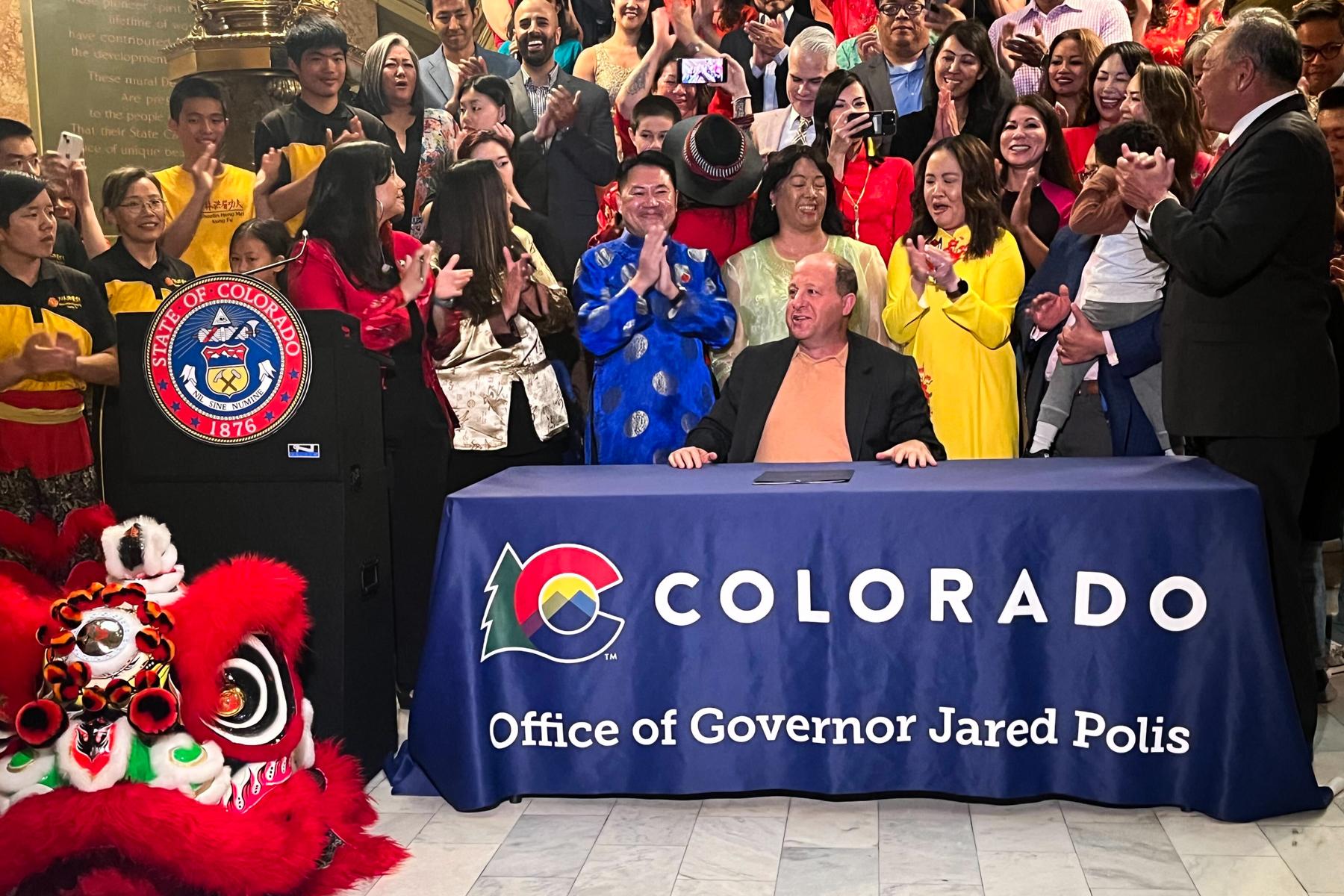
Vương-Sandoval, chair of the Lunar New Year Allies Advisory Group, spearheaded the bill, continuing her efforts to bolster and display Denver's large Vietnamese and Asian community.
"It's a historical moment," she said. "It speaks about all the years and all of the moments and all the struggles that took us here to ensure that we recognize the importance of it. Not just for us, but for those before us and those after us."
The community is experiencing a period of overdue recognition and reparations.
The City of Denver recently apologized for its role in an anti-Chinese/Asian riot of 1880 that resulted in the death of Look Young, a Chinese laundry worker, and the destruction of historic Chinatown, a once-thriving community of Chinese-owned properties; The area is now LoDo. A plaque that backhandly acknowledged the riot was removed last year, and a mural truly representing the city's rich Asian history is nearing completion.
Asian businesses are growing and flourishing on the stretch of Federal Boulevard between Alameda and Mississippi avenues known as the Little Saigon business district. That's thanks to several grants that have been used to promote business on the strip and grow cultural celebrations.
Vương-Sandoval said the Asian community in the city, and across the United States have started speaking up more in recent years, asking others to recognize their existence and support them.
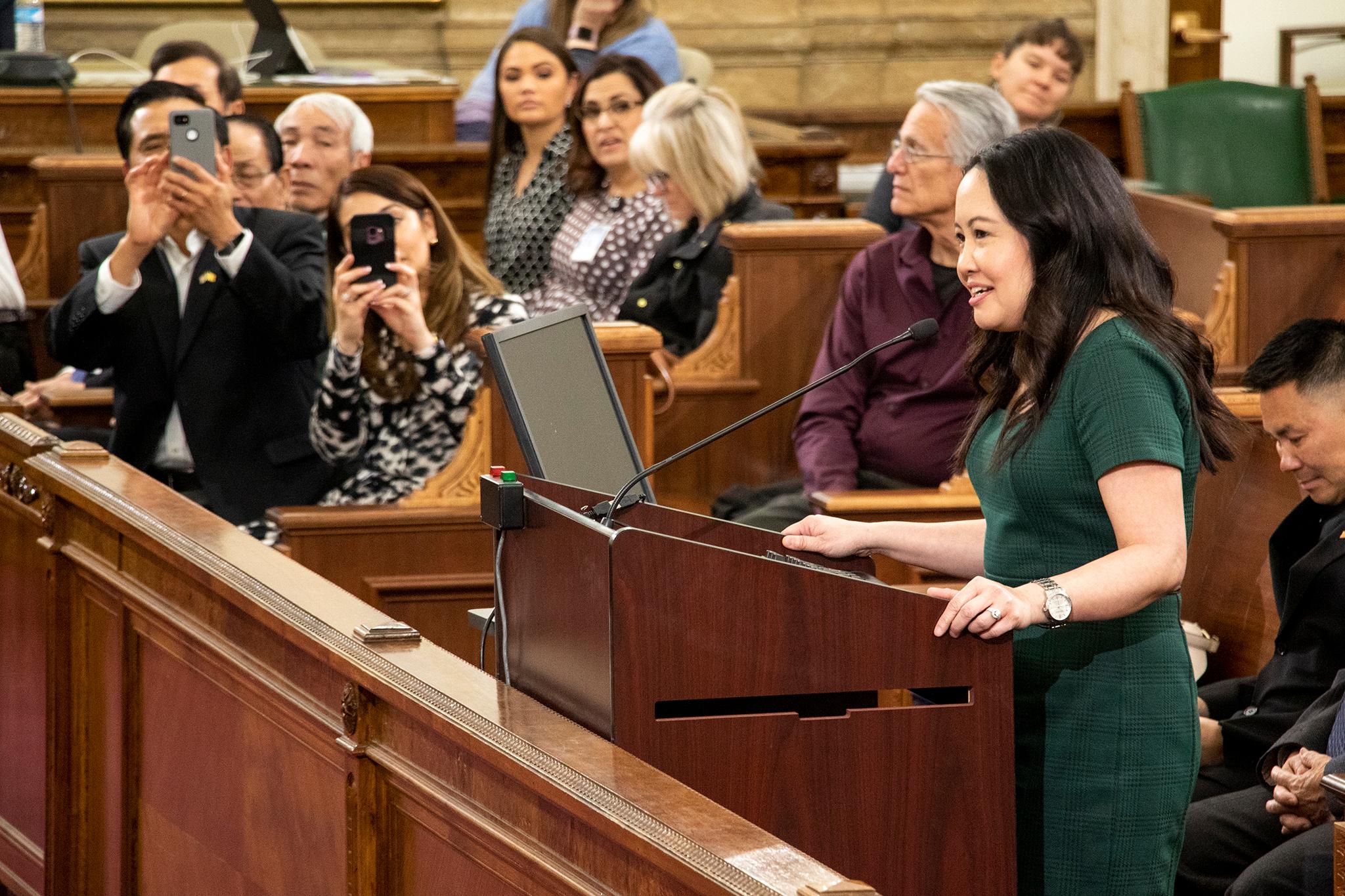
That support was especially needed during the pandemic, as hate crimes against Asian American and Pacific Islander communities increased.
"Historically speaking and culturally speaking, we were not encouraged to speak out because...that was not advantageous for us, for our safety, for our family, for the statuses that we had," Vương-Sandoval said. "I think the time has come where we feel confident. We feel proud and we feel compelled to bring these issues forward...to ensure that people recognize the value that we bring as a community and as individuals."
On Friday, Polis, along with bill's sponsors, State Senator Julie Gonzales and State Representative Serena Gonzales-Gutierrez, who is the incoming Denver at-large City Council member, recognized the community's efforts in bringing the bill forward and for thriving in the city.
After Polis signed the bill, the celebration began.
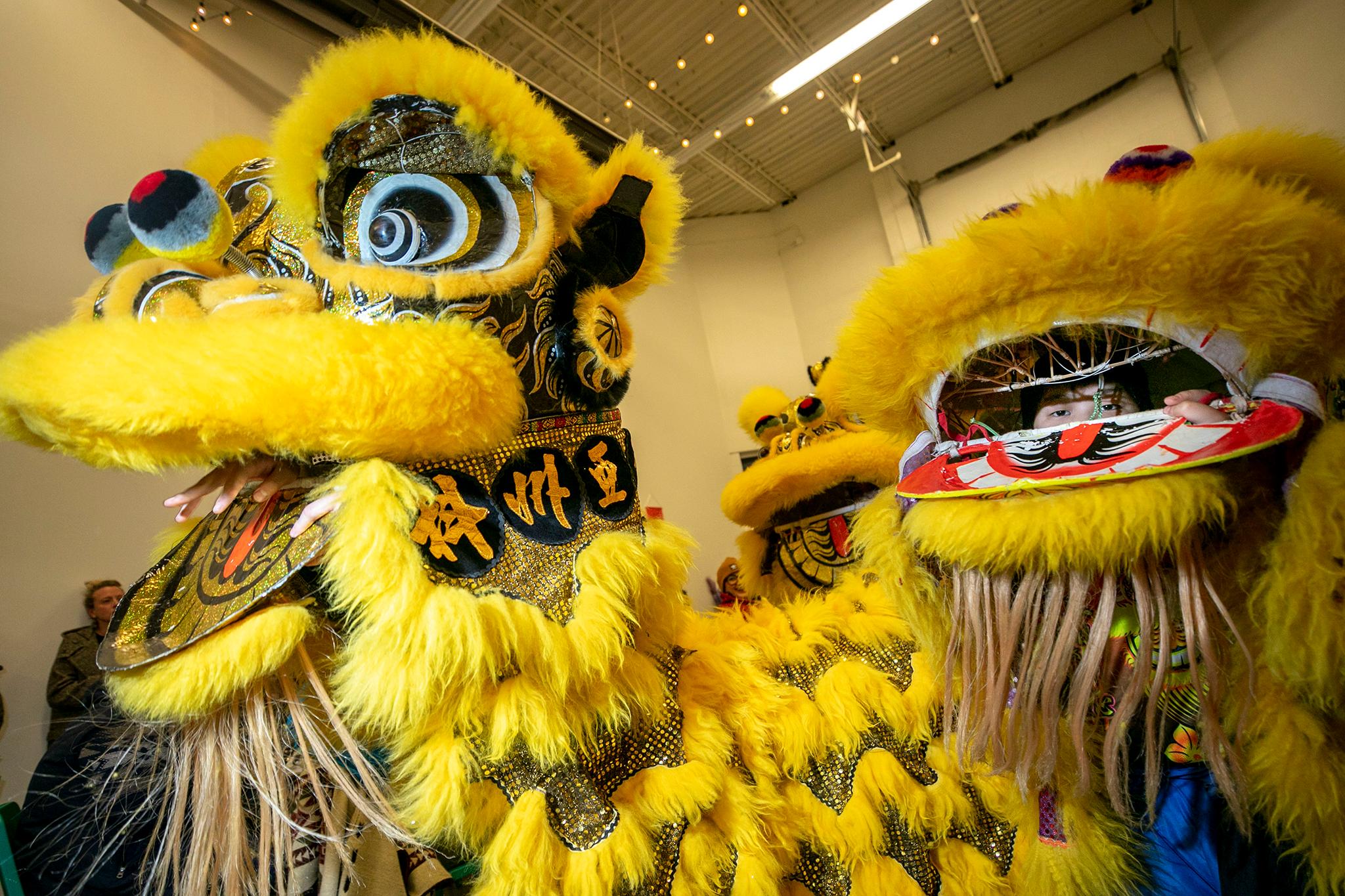
Lunar New Year is the perfect holiday to recognize because it signifies new beginnings. The holiday is celebrated by many southeast Asian countries and marks the beginning of the new year based on the moon phases.
Typically, the holiday is celebrated anywhere from late January to the middle of February but for official holiday purposes, the state will celebrate it on the first Friday of February. That date will always fall in the celebration window, said Vương-Sandoval.
Colorado is the second state, after California, to recognize Lunar New Year as a holiday. It will be an "observed" holiday as opposed to a "fiscal" holiday, which means state buildings aren't required to close.
Some of the traditions from the holiday include exchanging red envelopes, usually filled with cash, which symbolizes good luck. There's also the lion dancers.
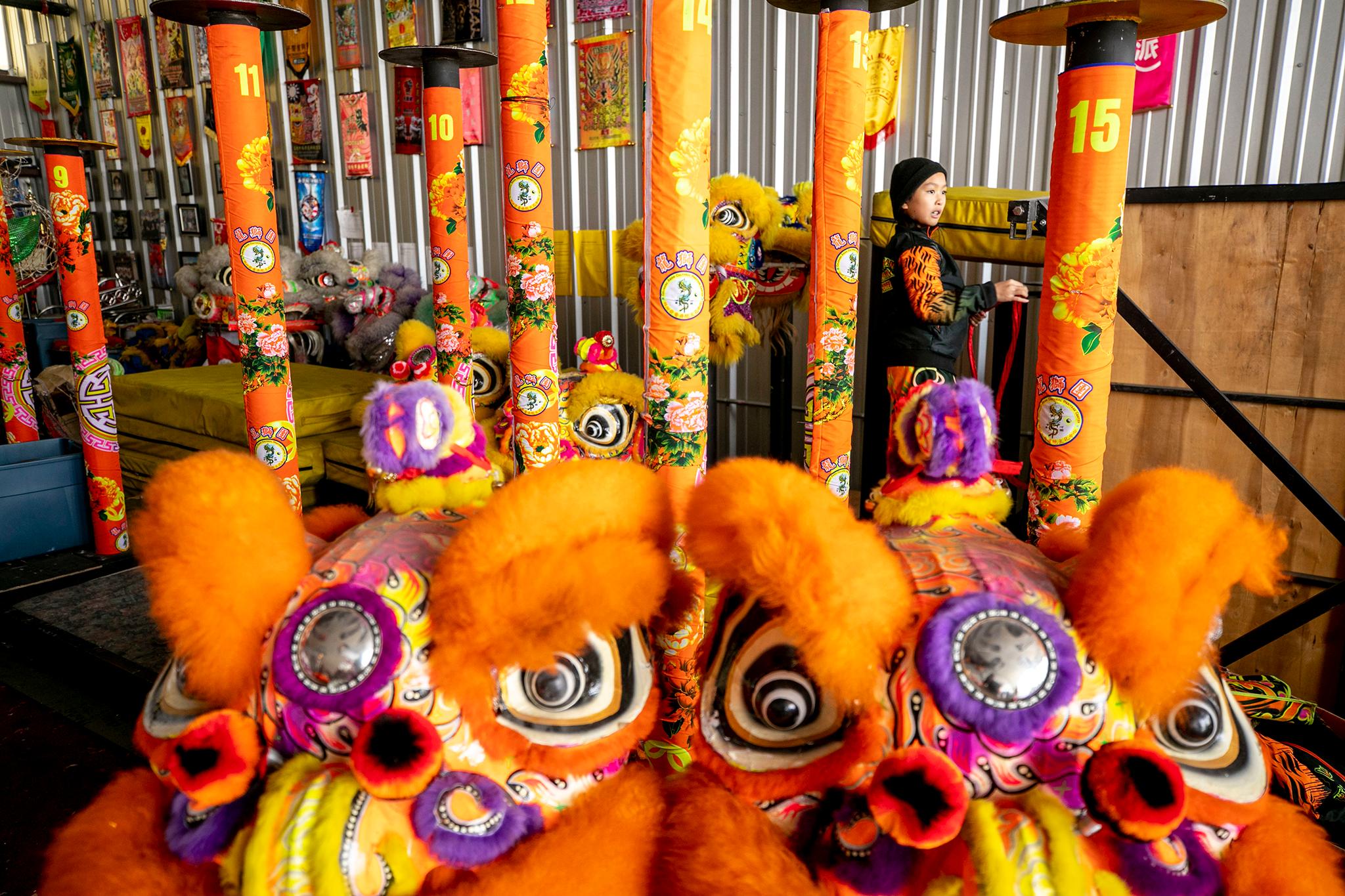
After the bill was signed, three lions twisted, turned and trembled through the Capitol hall. At one point, the lions pounced on a head of cabbage being held up on a fishing rod. Vương-Sandoval said the cabbage symbolizes a bountiful harvest, while the lions themselves ward off evil presences.
Once the lions had their fill, they spit the cabbage leaves back out. (They landed on yours truly.)
The lions also usher in joy and celebration, representing unity and community, a very fitting sentiment.
Vương-Sandoval said the bill signing celebrations are just beginning. On June 20, the committee will host another celebration at History Colorado with more cultural performances and food.
It's an afterparty, Vương-Sandoval said.
"This bill signifies our past, our ancestors, and our elders... and it will ensure that our ancestors' traditions are celebrated, respected for generations to come," she said. "It's deeply emotional to know that Colorado appreciates what we appreciate. That Colorado sees us and sees the beauty in what we see. Now it's going to be a permanent part of our history here in our state."

